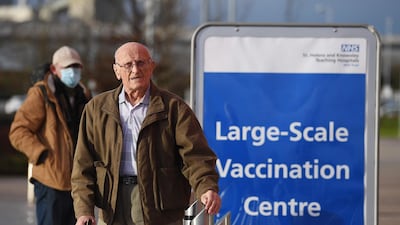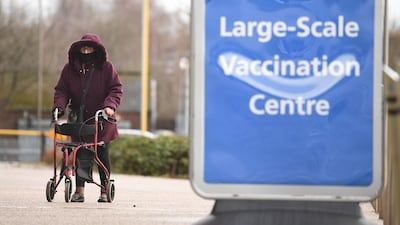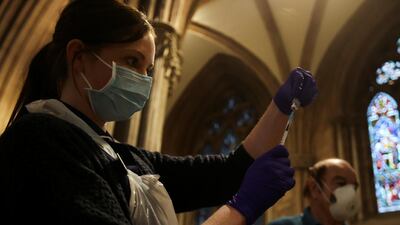More than 3.5 million people in the UK have received their first dose of the Covid vaccine, according to the latest government figures.
That means an awfully large number of Britons will have to be vaccinated if the UK is to hit its target of all adults being inoculated by September.
Along with patchy regional supplies, reluctance to take the vaccine among certain cohorts will be an obstacle to achieving this goal.
Some of this reluctance stems from a fear of the unknown – and in a bid to assuage trepidation, the UK government has released comprehensive guidance on what people can expect after getting vaccinated.
This guide distils the key points at work in the UK.
Will I experience side effects from taking the vaccine?
Vaccines can cause side effects but the majority are mild and short term, says the guidance.
Common side effects include: fatigue, headaches, tenderness where the vaccine was administered, and mild flu-like symptoms.
It is rare to experience high temperatures, however.
The guidance stresses that, even if you do experience symptoms, you will still need the second dose of the vaccine. It also mentions that occasionally your glands might swell but that a normal regimen of rest and paracetamol will clear it up.
Can you catch Covid from the vaccine?
No, is the simple answer.
It is possible that you may have Covid on the day of your appointment, though, and so the guidance urges vigilance.
If you experience any of the three major symptoms – a new and continuous cough, a high temperature, or a loss or change to your sense of taste or smell – then you should not attend the appointment and book a Covid test.
If you are unwell on the day of your appointment for non-Covid reasons, the advice remains to stay at home and book a new appointment.
What happens after my first appointment?
You should plan to attend your second appointment. It will be between three and 12 weeks after your first, according to the guidance.
Best protection is conferred by having two doses of the same vaccine.
Will the vaccine protect me and how long will it take to give me immunity?
Yes, in short.
Either vaccine you are offered in the UK has been proven to reduce symptoms and "been tested in more than 20,000 people in several different countries and shown to be safe", says the guidance.
Immunity won't happen instantly; it may take a week or two before protection starts to build up.
No vaccine is infallible, the guidance emphasises. It is possible that Covid can be contracted even after a vaccine is administered. But it will almost certainly be a less severe infection.
Can I still pass Covid on if I have had the vaccine?
This is a grey area and scientists are still unsure whether you can transmit the virus after vaccination.
But they are confident that the risk is greatly reduced. The guidance still advises vaccinated people to adhere to current Covid guidelines such as wearing face masks and social distancing.
_____________________________________________








